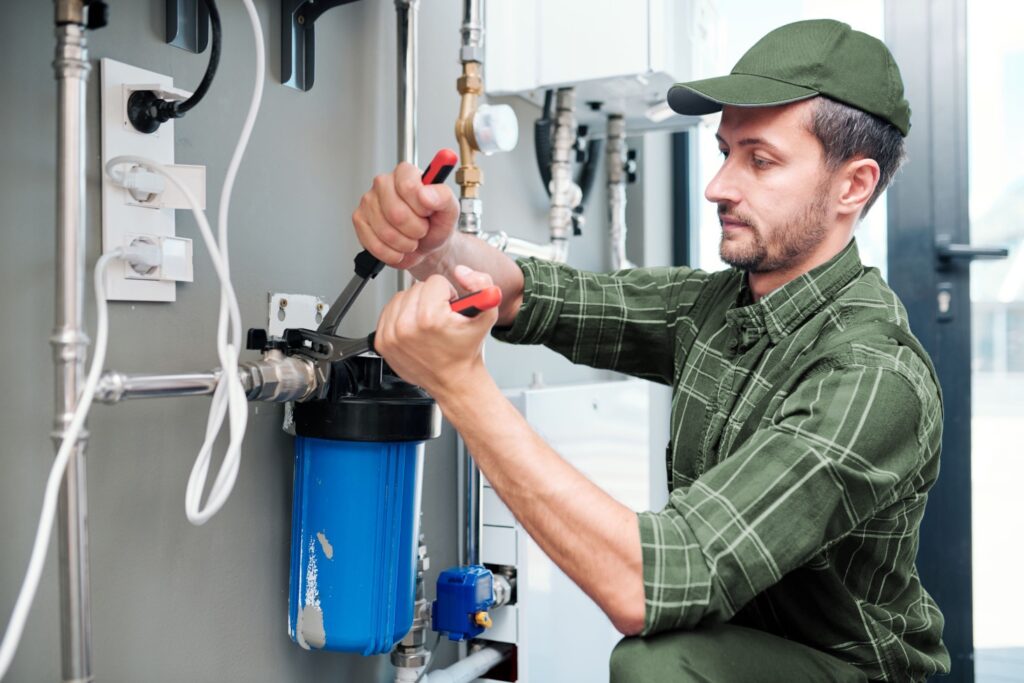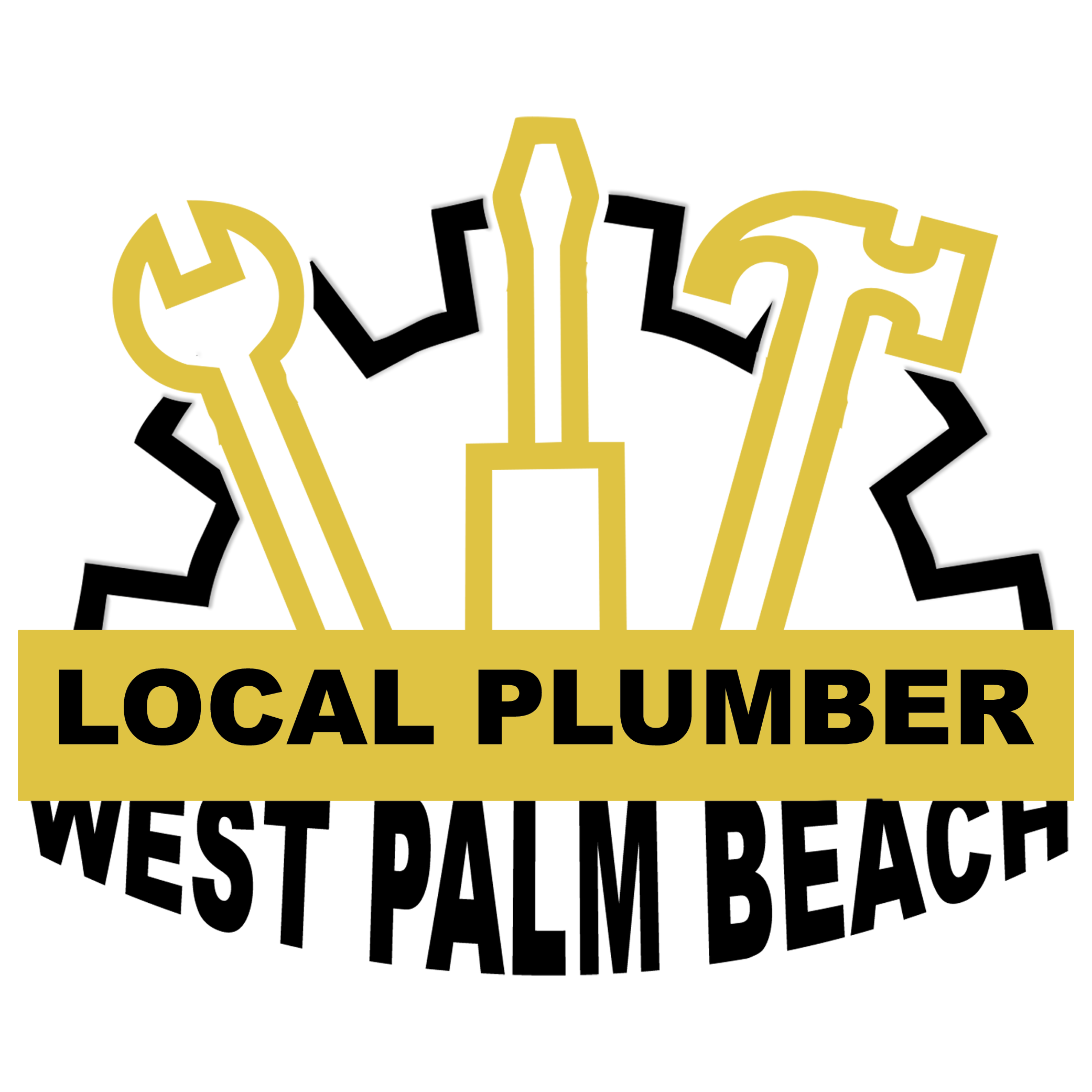Water Pressure Problems? Causes and Solutions

- Uncategorized
- March 1, 2025
Understanding Water Pressure in Your Home
Water pressure refers to the force of water moving through your pipes. It’s typically measured in pounds per square inch (PSI), with the ideal household water pressure ranging between 40-60 PSI. Too low, and daily tasks like showering and washing dishes become frustrating. Too high, and your plumbing system may face premature wear, leading to leaks and damage.
Identifying the root cause of your water pressure problem is the first step toward a solution. Let’s explore the common reasons behind both low and high water pressure.
Causes of Low Water Pressure
1. Sediment and Mineral Buildup in Pipes
Over time, minerals from hard water accumulate inside pipes, restricting water flow. This is a common issue in areas with high mineral content in the water supply. Sediment buildup can also clog faucet aerators and showerheads, further reducing pressure.
Solution: Regular maintenance and descaling of pipes help prevent buildup. Cleaning faucet aerators or replacing affected plumbing fixtures can restore normal pressure. For professional assistance, check our faucet repair and replacement services.
2. Hidden Water Leaks
A hidden leak in your plumbing system can significantly reduce water pressure. Leaks often go unnoticed until they cause visible damage, such as water stains on walls or ceilings.
Solution: Conduct a simple water meter test by turning off all water sources and checking if the meter still moves. If so, you may have a leak. Professional leak detection and pipe repair services can accurately locate and fix leaks, restoring proper pressure.
3. Corroded Pipes
Older homes with galvanized steel pipes are prone to internal corrosion, which restricts water flow. As corrosion worsens, pressure drops, leading to inefficient plumbing performance.
Solution: If corrosion is causing pressure issues, repiping with modern materials like PEX or copper can provide a long-term fix. Consulting a plumber ensures the right materials are chosen for durability and efficiency.
4. Municipal Supply Issues
Sometimes, the issue isn’t within your home but rather with the local water supply. Municipal water systems may experience fluctuations due to maintenance, infrastructure problems, or high demand.
Solution: Contact your local water provider to check for supply disruptions. If municipal pressure is consistently low, a pressure booster pump can help regulate flow.
5. Faulty Pressure Regulator
A failing pressure regulator can lead to inconsistent water flow. If your entire house experiences low pressure suddenly, this component might be the culprit.
Solution: Replacing the pressure regulator can restore proper flow. A plumber can test and adjust it to ensure optimal performance.
6. Clogged or Collapsed Pipes
Tree root intrusion, debris, or pipe collapse can lead to significant reductions in water pressure. This is especially common in older plumbing systems with weakened underground pipes.
Solution: A professional inspection using specialized camera equipment can detect blockages or collapsed pipes. In many cases, pipe repair or replacement is necessary.
Causes of High Water Pressure
1. Malfunctioning Pressure Regulator
Just as a faulty regulator can cause low pressure, it can also allow excessive pressure to build up. If your regulator is failing, water may rush through pipes at dangerously high levels.
Solution: A plumber can test your regulator and replace it if needed, preventing long-term damage to pipes and fixtures.
2. Thermal Expansion in Water Heater
When water heats up, it expands. In a closed plumbing system, this can create excessive pressure, stressing pipes and appliances.
Solution: Installing a thermal expansion tank can absorb excess pressure, preventing damage to your plumbing system.
3. High Municipal Water Pressure
Some neighborhoods receive water at high PSI levels due to municipal supply settings. This can cause damage to household pipes, fixtures, and appliances.
Solution: Installing a whole-house pressure-reducing valve (PRV) can regulate the incoming water flow and protect your plumbing from excessive force.
4. Fast-Closing Valves
Modern appliances with quick-closing solenoid valves (such as dishwashers and washing machines) can create water hammer effects, leading to high-pressure surges.
Solution: Installing water hammer arrestors can absorb pressure spikes, reducing stress on pipes and preventing loud banging noises.
Solutions to Balance Water Pressure
1. Conduct a Pressure Test
Using a water pressure gauge, attach it to an outdoor faucet and turn on the water. If the reading is below 40 PSI, you may need a booster pump. If it’s above 60 PSI, a pressure-reducing valve is recommended.
2. Maintain Your Plumbing System
Regular plumbing maintenance, including inspections, drain cleaning, and leak detection, can prevent pressure fluctuations. Consider scheduling professional drain cleaning services to remove buildup and restore proper flow.
3. Adjust or Replace the Pressure Regulator
A professional plumber can adjust or replace your home’s pressure regulator to maintain safe levels. This is a cost-effective solution for homes experiencing sudden pressure changes.
4. Upgrade Aging Pipes
If your home has outdated pipes that restrict water flow or are prone to damage, upgrading to modern materials can enhance efficiency and prevent pressure issues.
5. Install a Pressure Booster or Reduction Valve
If your home receives low municipal water pressure, a booster pump can increase flow. Conversely, if pressure is too high, a reduction valve will help prevent excessive strain on your plumbing.
When to Call a Professional Plumber
While minor water pressure issues can be addressed with DIY solutions, persistent or severe problems require professional expertise. If you experience any of the following, it’s time to contact a plumber:
- A sudden drop or spike in water pressure throughout the house
- Visible leaks or water damage
- Unusual noises from pipes
- Inconsistent pressure that fluctuates frequently
If you’re facing ongoing plumbing issues, our team at Local Plumber West Palm Beach can diagnose and resolve the problem efficiently.
Get Professional Help for Your Water Pressure Issues
Water pressure problems can disrupt daily routines and lead to costly plumbing damage if left unaddressed. Whether you’re dealing with low or high pressure, identifying the root cause and applying the right solution is essential.
For expert plumbing assistance, from toilet repairs to leak detection, our professionals are ready to help. Contact us today to schedule an inspection and restore your home’s water pressure to optimal levels.
